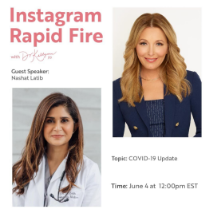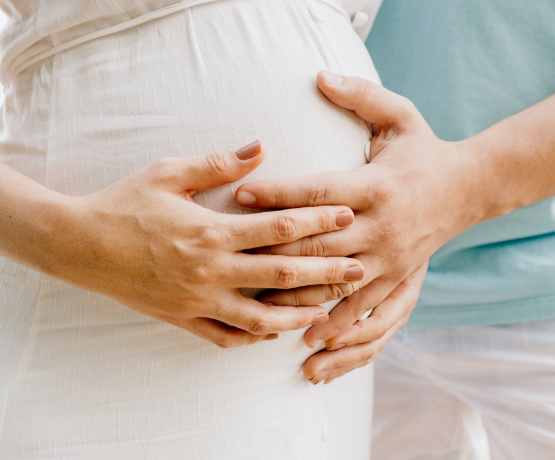Your ovaries hold the key to healthy aging
When it comes to optimizing our health and well-being, we often focus on the obvious things like eating right, exercising regularly, and managing stress. But there’s one critical piece of the puzzle that many women overlook: ovarian health. It turns out that ovarian function serves as one of the most critical women’s health biomarkers for your vitality, life expectancy, and healthy longevity.
By understanding the link between ovarian function and whole-body health, you can reduce your risk of chronic diseases, get ahead of unpleasant hormonal changes, extend your reproductive longevity, and feel your best at every age. So, let’s explore this fascinating connection between reproductive health and healthy aging!
The Menstrual Cycle as a Vital Sign
Most women don’t think much about their menstrual cycle unless they’re trying to get pregnant or avoid pregnancy, but your monthly period actually provides a wealth of information about your overall health. In fact, experts often refer to the menstrual cycle as a “fifth vital sign,” alongside blood pressure, heart rate, respiratory rate, and body temperature [1].
Previous studies show that menstrual cycle irregularities, such as short or long cycles, spotting between periods, heavy bleeding, and missed periods, can indicate underlying health issues like polycystic ovary syndrome (PCOS), thyroid disorders, uterine fibroids, and even certain cancers, including breast cancer [2]. Disruptions in cycle length and flow are also associated with a higher risk of type 2 diabetes, heart disease, osteoporosis, and cognitive decline (such as Alzheimer’s disease) later in life [3].
This connection stems from the fact that the ovaries are not just reproductive organs but also key endocrine glands that influence whole-body health. The hormones produced by the ovaries, especially estrogen, are essential for bone density, cardiovascular function, cognitive health, and more. When ovarian function starts to diminish with age or due to factors like stress, toxins, and nutrient deficiencies, it can trigger a cascade of hormonal changes and lead to widespread health effects [4].
AMH: The Biomarker of Ovarian Reserve & Longevity
One of the best ways to assess ovarian health and remaining egg supply (ovarian reserve) is by measuring anti-Mullerian hormone (AMH). AMH is produced by the granulosa cells in ovarian follicles and naturally declines with age. But having low AMH for your age can be a sign that your ovaries are aging faster than they should be [5].
Low AMH is linked with an increased risk of bone loss, cognitive decline, cardiovascular disease, and all-cause mortality [6,7,8]. On the flip side, women with robust AMH levels for their age tend to have better metabolic health, with lower blood sugar, insulin, inflammatory markers, and body fat [9]. Research shows that AMH can slow down bone loss by stopping the cells that break down bone. AMH may also support memory and brain function, although more studies in humans are needed to confirm this link.
In essence, research suggests that AMH is more than just a marker of remaining egg supply. It also reflects a woman’s “functional ovarian reserve” – the overall health and vitality of the reproductive system. It, therefore, provides a window into a woman’s biological age (in other words, how well or poorly her cells and tissues are aging) and risk for age-related diseases.
Mitochondrial Function: The Powerhouse of Ovarian Aging
Mitochondria, the energy-producing organelles within our cells, also play a critical role in ovarian aging and female reproductive function. You’ve probably heard them mentioned in a high school biology class, but what you may not know is just how much they affect your ovaries and reproductive health.
Think of your mitochondria as the energy source that fuels not just your ovaries but your entire body. When they’re healthy, your chances of maintaining fertility longer and avoiding age-related issues like osteoporosis or heart disease improve. When your mitochondria aren’t working as well as they should, it can speed up ovarian aging. This can mean lower-quality eggs, irregular menstrual cycles, and sometimes even premature menopause [10]. It can also make it harder to get pregnant and increase the risk of miscarriage.
But here’s the good news – you can support your mitochondria and help keep your ovaries in top shape. Simple, everyday choices like eating a nutrient-rich diet, staying active, and adding key supplements to your routine can help protect mitochondrial function. In turn, this may slow down the natural aging process of your ovaries, helping you feel better now and setting the stage for better health in the future.
NAD+: A Key Player in Ovarian Longevity
Nicotinamide adenine dinucleotide (NAD+) is a powerful coenzyme that’s working behind the scenes to keep your cells energized and healthy. NAD+ is essential for cellular energy production, DNA repair, and protecting your body from the effects of aging. But here’s the catch – as we get older, our NAD+ levels naturally decline, which can lead to mitochondrial dysfunction, inflammation, and the telltale signs of aging [11].
So, what does this mean for your ovaries? New research points to NAD+ depletion as a possible cause of ovarian aging and declining egg quality. In animal studies, supplementing with NAD+ precursors (like nicotinamide mononucleotide, or NMN) not only improved egg quality but also restored fertility and extended reproductive lifespan [12]. While more research is needed to confirm these effects in humans, the results are promising.
You can help support NAD+ levels through your diet, lifestyle, and supplementation. By doing so, you’re not just boosting your overall health – you’re giving your ovaries the energy and resilience they need to stay healthier for longer.
Lifestyle & Environment: Crucial Factors That Impact Ovarian Health
Your ovaries are actually quite responsive to the care you give them. By making strategic lifestyle changes, you can help slow ovarian aging, improve egg quality, and enhance your chances of conceiving naturally – not to mention get ahead of aging poorly, future disease, and chronic health conditions!
Your daily choices—what you eat, how you move, and how you manage stress—play a significant role in ovarian function. A nutrient-dense, antioxidant-rich diet filled with omega-3s, fiber, and vitamin-rich foods can help protect ovarian cells from oxidative damage and support hormone balance [13]. Regular exercise, especially high-intensity interval training (HIIT), has been shown to improve AMH levels and slow ovarian decline [14].
Quality sleep and stress reduction are just as critical. High stress levels can disrupt hormonal communication between the brain and ovaries, potentially leading to ovulatory dysfunction. Practices like yoga, meditation, and spending time outdoors can restore balance and optimize fertility.
But lifestyle isn’t the only factor at play. Environmental toxins such as bisphenol A (BPA), phthalates, and flame retardants are known to accelerate ovarian aging and may reduce egg quality. Long-term exposure to these endocrine disruptors is linked to lower AMH levels and earlier reproductive decline [15,16,17]. Reducing your exposure by choosing organic foods, filtering water, and avoiding plastic containers can help protect your reproductive health.
Targeted Support for Ovarian Health
While lifestyle shifts form the foundation, certain supplements can further support egg quality, ovarian function, and mitochondrial health. Studies highlight the benefits of CoQ10, magnesium, omega-3 fatty acids (EPA/DHA), and N-acetylcysteine (NAC) in reducing oxidative stress and improving ovarian function [18].
Working with a functional medicine provider can give you deeper insight into your hormonal health, ovarian reserve, and any hidden toxic exposures that might be affecting fertility. Advanced testing can guide a personalized plan to address the root causes of ovarian dysfunction and enhance overall reproductive health.
Conclusion
Your ovarian health is a cornerstone of your fertility and overall well-being. By supporting mitochondrial function, protecting egg quality, and reducing exposure to environmental toxins, you can positively impact your reproductive lifespan. The small changes you make today—from nourishing your body to managing stress—can have lasting effects on your ability to conceive and maintain hormonal balance.
If you’re ready to go deeper into understanding and optimizing your ovarian health, tune into our free fertility masterclass. It’s designed to give you the tools and insights you need to enhance your fertility and take control of your reproductive future.








